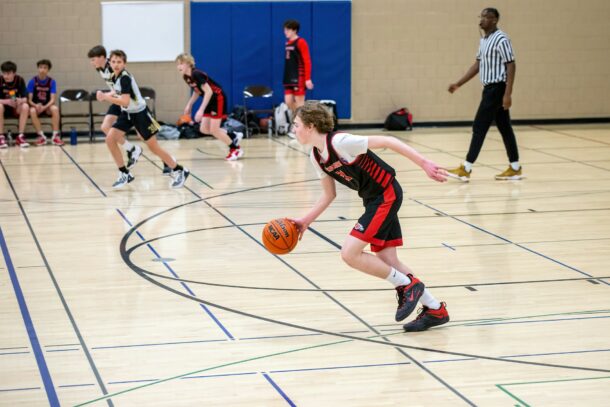In today’s post, we delve into a crucial aspect of coaching that can greatly impact player development. Basketball coaches play a pivotal role in shaping their team’s performance, but at times, unintentional actions can hinder player progress. By exploring the four common practices that inadvertently hold back players, we aim to provide valuable insights to coaches at all levels. Join us as we shed light on these factors, enabling coaches to empower their athletes and create an environment conducive to growth, success, and fulfilling their true potential on the court.
4 Things Basketball Coaches Do To Hold Back Their Players
Years of recruiting potential players has given me the opportunity to observe more high school and club practices and games than I can possibly count and having four kids of my own has let me do the same with grade school and middle school teams. Watching all of these coaches in action has taught me a great deal in terms of X’s and O’s, practice organization, and game management both in terms of what to do and what not to do. One of the things that I have discovered is that while most of us mean well there are several things that many basketball coaches do that are actually holding back our players and preventing them from reaching their full potential.
1. We keep our players (and our teams) “safe.”
When it comes to individuals basketball coaches often dictate to a player what he can and can’t do on the court. One common example is that we often decide early on that a certain athlete is a post player and thus should never dribble the ball, even in practice. After all, we tell ourselves that we don’t want that player at risk of turning it over and so handing it off to a guard is a “safer” strategy. While that may be true in some instances it also keeps that particular player from developing an extremely useful skill.
Coaches do the same when it comes to scheduling. Many won’t venture out and schedule any team that is historically “better” than their own team. Why? So they can keep their team’s record and self esteem safe by reducing their risk of losing.
Growth and improvement often comes after stretching ourselves and getting out of our comfort zones while staying safe and comfortable often leads to stagnation.
2. We overemphasize skills instead of qualities.
I fully realize that as long as they keep score results are important. However, constantly praising a player just because he is a good shooter or because she is a great ball handler can be detrimental to both the individual and the team. Instead we should be praising a player’s work ethic, loyalty, and commitment.
When skills are overemphasized a player may not make the correlation between work and improvement and may falsely believe that a player either has “it” or doesn’t. Don’t praise the skill or the result; praise the process that produced the skill.
3. We bail our players out too early.
One of life’s greatest lessons is that “no one is coming to the rescue” and the sooner our players realize that the better. The problem is that many of our players come from families where their parents “fix” every single problem for them and so they expect us to do the same. Unfortunately, many of us do.
As a college coach, I am constantly in awe of how many times I hear from a freshman, “I never had to deal with that before because my high school coach always took care of it.” By all means we should help our players but there is a huge difference between helping them and completely taking care of it for them.
4. We don’t walk the walk.
I am a firm believer that most players mirror their coaches both on and off the court. Therefore, coaches need to be what they want their players to be and they need to act how they want their players to act. I don’t think you can insist that your players put in extra court time if you’re the first one out of the gym every day.
You can’t realistically expect them to take care of themselves physically if you don’t do the same. If you teach and coach at the same school, your players aren’t going to take their classes seriously if you don’t. Make a list of everything you want your players to do and to be and then make sure you are doing the exact same things. Actions always speak louder than words!
I hear coaches say all the time that the first step in winning is to make sure you don’t lose. Well the first step in helping our players reach their fullest potential both on and off the court is not to hold them back. Overcoming the four roadblocks above is a definite step in the right direction.
Related: 6 Essential Workout Habits for Players
Resources:
If you found this useful, don’t forget to check out additional blog posts at TeachHoops.com. Also, check out TeachHoops on Facebook, Twitter, Instagram and YouTube.








